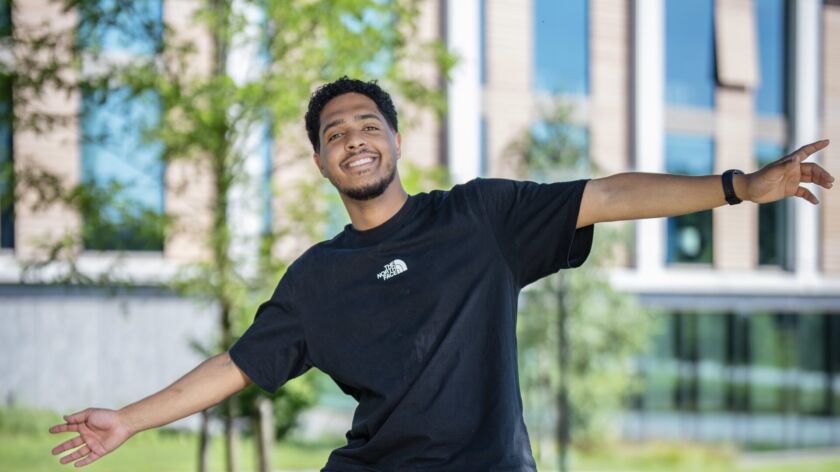Spence works on the ethics of AI: ‘Much of the fear of AI comes from ignorance’
-
 Spence van Asperdt. Foto: Johannes Fiebig
Spence van Asperdt. Foto: Johannes Fiebig
What sets Generation Z apart from other generations? What drives today’s youth, and what keeps them awake at night? No one can tell us better than Gen Z themselves. That's why we are portraying 24 students from Radboud University. In this episode: Spence van Asperdt, 24, Artificial Intelligence, works on the ethics of AI.
‘The rise of Artificial Intelligence (AI) is the most important social development since the internet. It is impossible to predict how it will change our lives.
Of course, there are also dangers. Take deep fakes, which are becoming increasingly realistic. You often hear horror stories about that. For example about criminals approaching parents using their daughter’s voice to extort money from them.
Many students, including myself, are actually quite optimistic. I see AI primarily as a tool that can be used in lots of ways. Whereas it now takes a doctor two hours to detect a tumour, AI can do it in minutes with more precision. This frees the doctor to spend more time with the patient.
I personally use ChatGPT a lot, for example to improve the structure of my essays. I also have a business that often requires me to write code. A prompt (assignment, Eds.) of five sentences can easily save me an hour of work.
At university, you still get quite a few assignments that you could do solely with AI. I actually think these are no longer good assignments. Lecturers would be better off focusing on innovating their teaching. For example by having students submit prompts instead of an essay. That way, they can show that they understand how ChatGPT works.
With a few fellow students, I launched the ERISC collective (Ethically Responsible Innovation Student Collective, Eds.), in which we reflect on the responsible use of AI. We consider the social, ethical, and legal implications. Creating awareness around this is hugely important. Much of the fear of AI comes from ignorance.’



